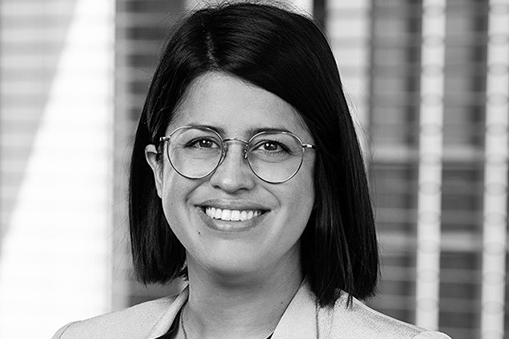Investing with a consideration for environmental, social and governance (ESG) impacts and outcomes in mind has become increasingly mainstream. This year is likely to be a watershed for the ESG movement, with the International Sustainability Standards Board’s (ISSB) project to devise a single global framework for disclosing sustainability information through the International Financial Reporting Standards (IFRS) Foundation gaining momentum.
Meanwhile, the pool of funds invested responsibly continues to grow, with the Responsible Investment Association of Australasia’s data indicating the pool of funds invested responsibly reached $1.54 trillion in 2021 [1], up from $1.28 trillion in 2020. Assets under management that are invested responsibly comprise 43 per cent of the total market, up from 40 per cent in 2020.
While many larger listed businesses have been on an ESG journey for years, mid-sized and smaller listed businesses are often still working through what matters to investors when it comes to their sustainability and ESG performance.
ASX recently held a roundtable to explore mid- and small-cap ESG reporting. Here’s a summary of the well-attended event.
Giri Tenneti, Senior Manager, Listed Company Services, ASX: Why do investors screen for ESG?
Robyn Parkin, Head of Sustainability, Ethical Partners: It's about risk and opportunity. We see good ESG as a proxy for good management, governance and business strategy. We believe companies that do things better will do better in the long term. Also, our clients want us to prioritise ESG. Billions of dollars of superannuation mandates are increasingly concerned about this.
Daniela Jaramillo, Head of Sustainable Investing Australia, Fidelity International: It's a mix between prioritising the business case for managing risks and understanding multiple stakeholders needs. It’s also important to acknowledge there are multiple levels of ESG screening. You can screen out a specific sector like tobacco. You can also have positive screens to invest in companies that are making a contribution. Or you can look for companies you think will have less risk because they're managing ESG risks better. We have multiple funds and the approach we take is different for each fund.
Also, regulation is emerging that limits what can be called a sustainable fund. For example, in Europe, if an Australian company wants to be part of a fund that is marketed as being sustainable, they need to meet certain requirements. That's an additional reason why we care about this.
Giri: Could you talk about ESG reporting and performance for smaller companies?

Robyn Parkin, Head of Sustainability, Ethical Partners
"We see good ESG as a proxy for good management, governance and business strategy."
Robyn: We invest in companies of any size. We currently hold about 11 ASX 50 companies, but we do have a very profound small cap bias. Sometimes up to 50 per cent of companies in a portfolio will be small cap.
ESG is a journey for all companies and smaller cap companies are often at the start of their journey. We are very happy to work closely with our small cap portfolio companies on that journey.
Daniela: We have a small, mid-cap specific fund in Australia and some of our funds can invest in any company. We have detailed conversations with our analysts and portfolio managers about the main ESG risks impacting a company and how they challenge the environment and society.
Also, regulations like the EU CS Corporate Governance Directive ask European companies to do ESG due diligence on suppliers and across value chains. So, regardless of size, if one of your clients is European, they will be doing due diligence on you in the next few years. So to take advantage of this opportunity, start thinking about these issues now.
Giri: Robyn, could you tell us about the ESG assessment frameworks you use?
Robyn: Our proprietary in-house screen is the EPORA, the Ethical Partners Opportunity and Risk Assessment. It looks at myriad ESG issues and every stock we consider for investment goes through it. It's integral to the way we look at our portfolio impact. If your stock is not assessed by MSCI for its ESG performance, that makes your own disclosure even more crucial. We're also assessed on our portfolio impact. So as much pressure as companies are feeling, investors feel as well. There's a huge focus on greenwashing. We can't make claims we can't back up.
Ethical Partners has 20 per cent, 30 per cent and 50 per cent carbon emission reduction targets and a net zero target. It’s getting harder to put a company that does not have emissions disclosure into our portfolio because it impacts the way we make claims about addressing our targets. So, if you put out ESG information, we can use that to look at how you fit in with our own targets. And then, it's about working together to address double materiality, which is the financial impact a business has, in addition to its effect on the market, people and the environment.
Giri: Daniela, do you have a preferred framework against which companies should disclose ESG information?
Daniela: The ISSB will unify everything. In the past, the Global Reporting Initiative has been useful to capture the double materiality piece. It also has good governance reporting. Having said that, the Sustainability Accounting Standards Board takes more of a sector-by-sector guidance on material issues. So SASB may be a good place to start for reporters that are just starting out.
Giri: As I understand it, the ISSB standards are an evolution of the SASB standards.
Robyn: Because we do bottom-up and top-down proprietary research in-house, we don't mind what framework the company is reporting through as long as the disclosures are there and genuine and you're bringing your stakeholders along on the journey. Having said that, we are big fans of The Task Force on Climate Related Financial Disclosures and The Taskforce on Nature-related Financial Disclosures, which will be coming out at the end of the year. They really show how you're integrating ESG into strategy and that goes back to risk and opportunity. When it's done well, it's incredibly valuable information for investors and for a company to look at how they can benefit from this process as well.

Daniela Jaramillo, Head of Sustainable Investing Australia, Fidelity International
"ESG adds value. Something that might be a cost this year contributes to value in five years, such as energy efficient infrastructure or technology."
Giri: Roland, tell us about your business so people can understand where you're coming from?
Roland Hill, managing director, CEO, FYI Resources: We're an ASX-listed small cap. We have spent five years developing a material called high-purity alumina or HPA. It has applications in LED lights and sapphire glass, which is for TV and other screens.
Giri: What's driving your ESG disclosure?
Roland: It’s an integral part of our future, so we made a conscious decision to start the process early. We spent time looking at the landscape, frameworks and reporting formats. We wanted to present ourselves as a credible participant in the market with all the right ESG operating parameters. This was necessary for us as a group and very important for our partner, Alco.

Roland Hill, managing director, CEO, FYI Resources
"ESG it’s an integral part of our future, so we made a conscious decision to start the process early. We spent time looking at the landscape, frameworks and reporting formats."
Giri: Which reporting framework are you using?
Roland: We've joined the United Nations Global Compact and we use the TCFD.
Giri: Is the TCFD the most widely-adopted reporting framework in Australia?
Tim Siegenbeek van Heukelom, chief impact officer, Socialsuite: Definitely. TCFD has a really strong climate focus so it’s the go-to framework, not just in Australia, but around the world. SASB is a good starting point if you want a slightly broader-based set of metrics.
Giri: Roland, who looks after ESG in your company?
Roland: We have a dedicated ESG non-executive director Sandy Chong. But our reporting functions do the work behind all this. We see it as a group thing, but we have champions within teams as well.
Giri: How long did it take from recognising a need for ESG disclosure to publishing your first ESG report?
Roland: About 12 months. At the start there was a lot of detail and process. We've reported seven quarters now. It's been a fantastic experience for us.
Giri: Tim, how does a typical small cap report ESG information and why do they report?
Tim: It differs a lot. Most companies at the smaller end of the market do not disclose ESG metrics. And there’s often question marks about how to get started. But once you get the hang of it, you understand what you need to do. It's not about being perfect. It's about starting the journey.
Giri: Is ESG more important for some sectors than others?
Tim: There are quite a few misconceptions around ESG. Some people see ESG as being for large companies, others think it’s more for fossil fuel or mining companies. But it’s important for every industry to understand their carbon footprint and investors and other stakeholders want to see you go through that journey. Look at what’s material to your business and industry as a first step. It's increasingly important to look at how the world impacts your business and how your business impacts the world.
When it comes to metrics, it's very likely you've already done something on a lot of metrics. For instance, when it comes to governance, you’re likely to already have a whistleblower policy. So disclose it and make sure it's on your website. There are small things you can do that demonstrate your thinking about ESG.
Giri: Do you have to give up returns to invest in ESG?
Daniela: ESG adds value. Having said that, what’s important is timeframes. Something that might be a cost this year contributes to value in five years, such as energy efficient infrastructure or technology.

Tim Siegenbeek van Heukelom, chief impact officer, Socialsuite
"It's increasingly important to look at how the world impacts your business and how your business impacts the world."
Giri: How can you make sure your data is not misrepresented by third-party evaluation services and ratings agencies?
Tim: Be really clear if it's something that you're working on or haven't figured out. Be very explicit about what you're disclosing. If you're committing to a timeline, you have to follow up on that and say why if you don’t achieve it. Make sure it doesn't become a generic report in which you say a lot of motherhood statements.
As a small cap, it's about being agile and figuring out what works for you. It's not about having one person in your business who manages a consultant and creates a report once a year.
It's about enduring capacity building, education and embedding ESG into your whole organisation. It flows all the way from governance and the board, to management, to operational decision making. Take small steps, especially if you are a micro or small cap. And if you don't know what to do, get someone to guide you. Collect your data, get it in one place, get it in shape and think about what you can achieve in a year.
-------------------------
[1] RIAA, Responsible Investment Benchmark Report Australia 2022
